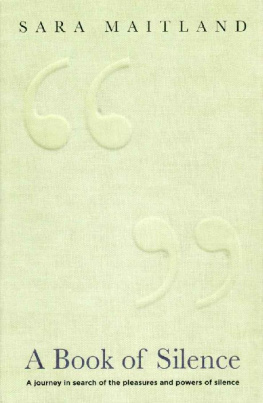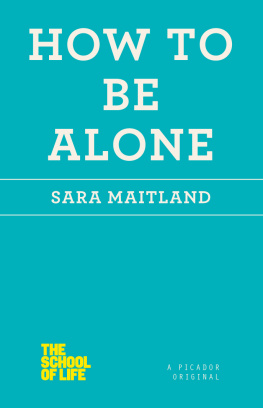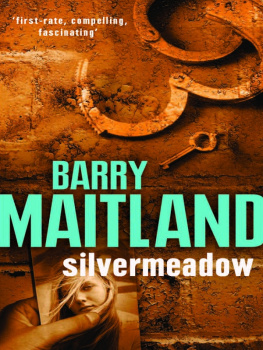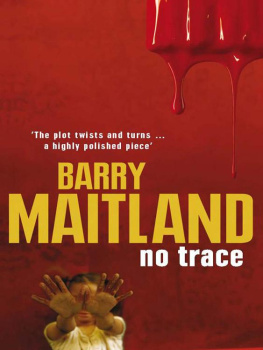Maitland - A big-enough God : artful theology
Here you can read online Maitland - A big-enough God : artful theology full text of the book (entire story) in english for free. Download pdf and epub, get meaning, cover and reviews about this ebook. City: London, year: 1995, publisher: Henry Holt and Co.;Mowbray, genre: Religion. Description of the work, (preface) as well as reviews are available. Best literature library LitArk.com created for fans of good reading and offers a wide selection of genres:
Romance novel
Science fiction
Adventure
Detective
Science
History
Home and family
Prose
Art
Politics
Computer
Non-fiction
Religion
Business
Children
Humor
Choose a favorite category and find really read worthwhile books. Enjoy immersion in the world of imagination, feel the emotions of the characters or learn something new for yourself, make an fascinating discovery.

A big-enough God : artful theology: summary, description and annotation
We offer to read an annotation, description, summary or preface (depends on what the author of the book "A big-enough God : artful theology" wrote himself). If you haven't found the necessary information about the book — write in the comments, we will try to find it.
Big-Enough God is a book by Sara Maitland.
A big-enough God : artful theology — read online for free the complete book (whole text) full work
Below is the text of the book, divided by pages. System saving the place of the last page read, allows you to conveniently read the book "A big-enough God : artful theology" online for free, without having to search again every time where you left off. Put a bookmark, and you can go to the page where you finished reading at any time.
Font size:
Interval:
Bookmark:
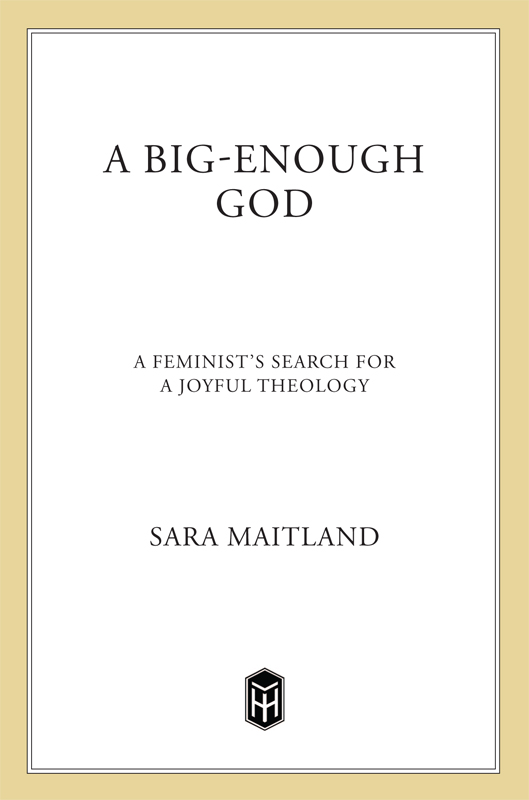

The author and publisher have provided this e-book to you for your personal use only. You may not make this e-book publicly available in any way. Copyright infringement is against the law. If you believe the copy of this e-book you are reading infringes on the authors copyright, please notify the publisher at: us.macmillanusa.com/piracy.
Contents
For
RICHARD COLES
with love and thanks
I would also like to thank Ros Hunt, Janet Batsleer, Jenny Barrett, Alan Green, Sabine Butzlaf, Ken Leech, Trevor Richardson, James Hanvey, Rowan Williams, Alan Mould, Michael Shier, and Arther Peacocke for their assorted assistance; Arthur Partridge of Corpus Christi, Cambridge, for curbing my exuberance and correcting my science; Judith Longman of Mowbray; and Fr Alan Scott and the people of St Marys Stoke Newington, with whom I first explored many of the ideas in the book.
Much of the material in this book was worked out in a series of four lectures given in Lent 1992, to the Anglican clergy of the Stepney Episcopal Area of the Diocese of London. Thanks are due to Jim Thompson, then Bishop of Stepney, and to his Archdeacon; and to everyone who attended the lectures.
Introduction
It is a crafty, though not altogether honest, ploy to apologize for a book right at the beginning: it disarms the critic and protects the writer in one cheap move. It is also, interestingly, a device frequently used by women when they are about to exercise power.
I know I have the body of a weak and feeble woman, begins Queen Elizabeth I, before asserting her sovereign power, and socking it to her navy at Greenwich in what must be one of the best gung-ho militaristic polemics in the English language but I have the heart and stomach of a King, she goes on, and of a King of England too.
I shall have to make use of some comparisons, for which I would like to apologize, since I am a woman I write simply what I am ordered to write. But this spiritual language is so difficult to use for anyone like myself who has not gone through studies that it may be that most of the time I wont get it right. Seeing so much stupidity will provide some amusement for you.
writes Teresa of Avila, just to cover herself as she begins yet another savage attack on the Spanish hierarchy, and the spiritual conventions of her time.
Instinctively I wanted to begin this book with a quotation from Psalm 131.
Lord, I am not high-minded: I have no proud looks;
I do not exercise myself in great matters which are too high for me.
Truly I have set my soul in silence and peace; as a weaned child on its mothers breast so even is my soul.
Unlike St Teresa and Elizabeth Tudor and countless other women who used this technique, or write under male noms de plume or found other, similar, cover-ups for their own temerity for real and material reasons of oppression, I am a daughter of feminism; I know for a certainty that my impulse to apologize is internal. My argument, in this book, is that those of us who are Christians in these pregnant years leading up to the twenty-first century have nothing to be afraid or ashamed ofand so it is interestingly something about inferiority and self-subjection that leads me to go to even the lengths of apologizing for not apologizing.
I do not believe that the matters I am going to discuss here are too high for me as the psalmist puts it. They are not too high for anyone. It is abundantly clear that if God exists she exists as a God who wishes to reveal herself; who labours constantly and complexly in her relationships with the creation, both individual and communal, tossing down clues and invitations and introductory notes here, there and everywhere like an ambitious hostess: a God who yearns to be loved and known and engaged with. Nothing else explains the business of creating anything at all. If the process of knowing and believing feels complex and difficult this must surely be because what is being revealed is a depth of complexity, of intricacy and enormity that ought to delight us but usually scares us. The desire to reduce it all to a tidy little formula is irresistible and must be resisted: in the last count why bother about a tiny little, simple God who is slightly less complicated than the workings of my own mind?
This year, after three centuries of effort, mathematicians have (probably) found a proof of Fermats Last Theorem. This is a very simple little theorem on paper: that for the proposition
X n +Y n = Z n
there are no solutions for any whole number where n is higher than 2. I am not asking you to get excited about thisalthough actually it is very excitingbut simply to face the fact that it has taken some of the best abstract thinkers in Western history over 300 years of devoted work to crack this nut. It took nearly three hours to demonstrate something as simple as this one line. (Even now it will take several years for those who can understand how it was done, to check that it was done right.) Why ever should we think that proving or explaining the God who is both transcendent and immanent, who holds the universe in a hand which sets it free, who can do both black holes and the pure giggles of a ticklish baby, will be easy? Nonetheless here is a God challenging, prodding, inspiring, moving people to give it a try. We are all invited to come and play this game; and no one is excluded. I draw much comfort, indeed, from the fact that Fermat, the French lawyer after whom this particular equation is known, was an amateur mathematician rather than a professionaland he did not find this matter too high for him.
This book grew out of an invitation to give a series of Lent lectures to the clergy of the Church of Englands Stepney Episcopal Areathat is to the Anglican clergy of inner East London (and anyone else who wanted to attend). My official brief for these lectures was to offer these professional Christians something that might help them in their spiritual journeys. This was a pretty tall order. Later on in the book I hope to explore the relationship of what is usually called spirituality to what it is to be a person, and one of the things that I am convinced of is that the process of growth towards God is also a process of growth towards oneself, and ones own selfbecause of the sort of God we haveis different from any other self. In this sense I cannot possibly know what will help anyoneand doubt very much if there is anything that will help everyone at once. All I can do really is tell you about some things that have interested or amused me, as part of the engagement to see what it is that God wants to be knownand see what happens.
Because of the necessarily subjective nature of this enterprise, I would like to say something first about myself. Something about how I came to be the sort of person who does the sort of theology I do. This narrative seems important because there are no other criteria against which you can test the usefulness or accuracy of what I am going to say.
I was born in 1950 into a large and prosperous Scottish family, and was brought up as a Presbyterian. In Scotland the Presbyterian Church (The Church of Scotland) is established, in exactly the same way that Episcopalianism (The Church of England, The Anglican Communion) is established in England. In fact, slightly mysteriously, the Queen is the supreme governor, the head, of both churches simultaneously.
Out of that background I brought a great love of the Bible and a generally warm feeling about Christianity and community. I did not however discover there any sense of personal conversion, of passion or commitment. As a teenager the mantle of Christianity simply slipped off: there was nothing traumatic or difficult about it, no violent or exciting experience of lapsingfaith simply was not one of the things we thought or felt or talked about.
Font size:
Interval:
Bookmark:
Similar books «A big-enough God : artful theology»
Look at similar books to A big-enough God : artful theology. We have selected literature similar in name and meaning in the hope of providing readers with more options to find new, interesting, not yet read works.
Discussion, reviews of the book A big-enough God : artful theology and just readers' own opinions. Leave your comments, write what you think about the work, its meaning or the main characters. Specify what exactly you liked and what you didn't like, and why you think so.

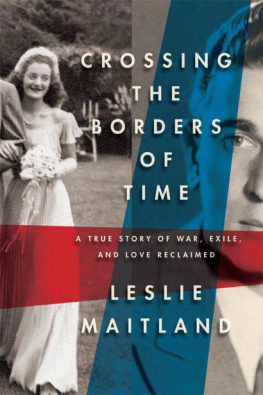
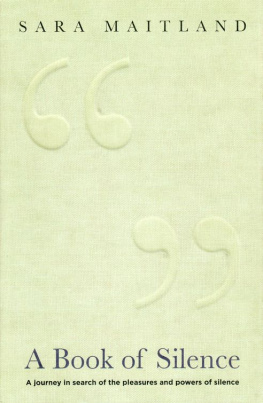
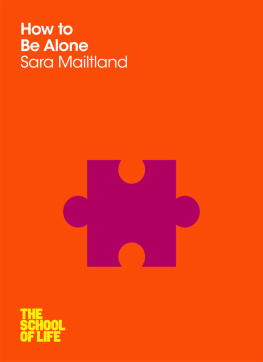

![Iain Maitland [Iain Maitland] - Mr Todd’s Reckoning](/uploads/posts/book/141709/thumbs/iain-maitland-iain-maitland-mr-todd-s.jpg)
